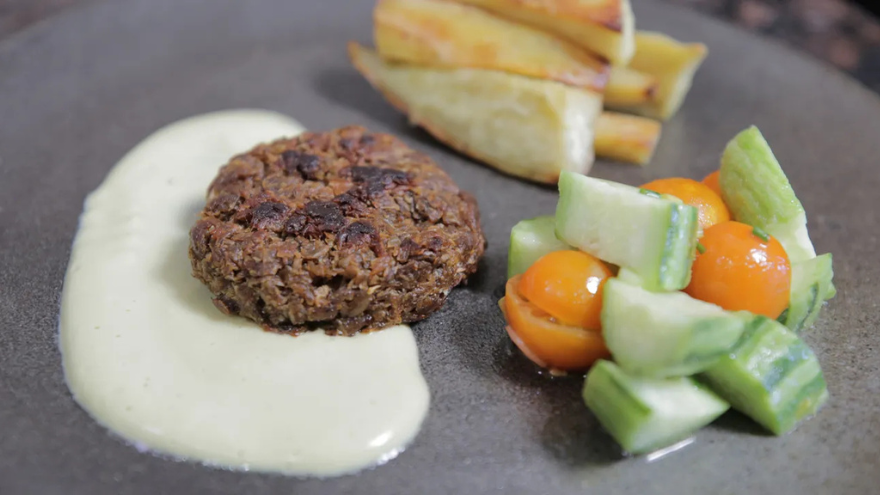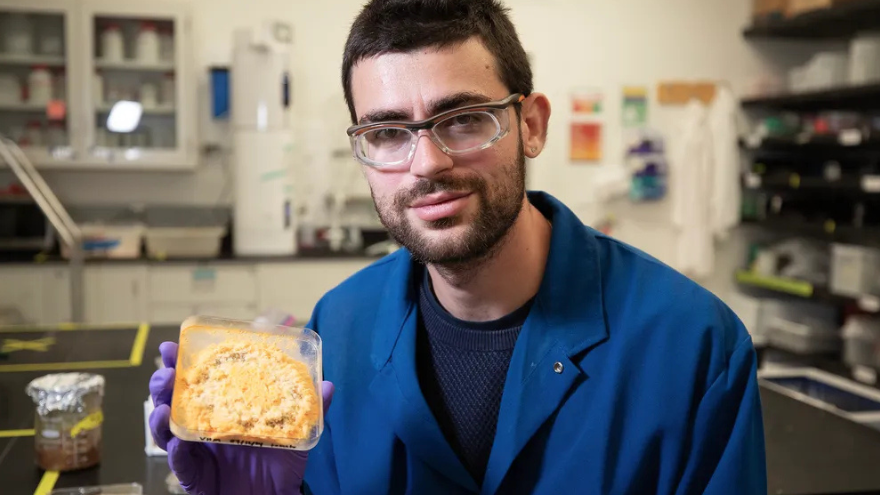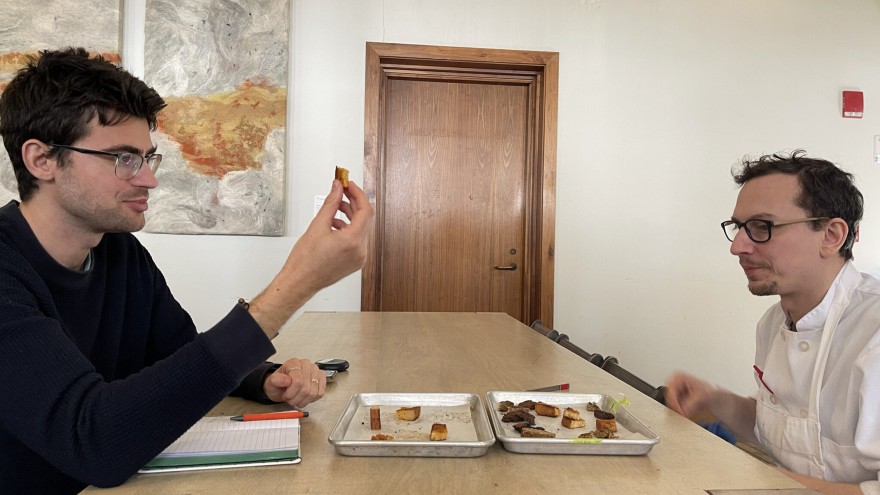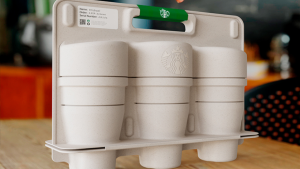Chef-turned-chemist Vayu Hill-Maini is investigating how fungi can revolutionize the way we handle food waste. By harnessing the power of mycelium to convert discarded organic food materials such as stale bread and fruit scraps into edible, tasty and nutritious products. “Our food system is very inefficient, with about a third of food produced in the U.S. going to waste,” shares Vayu Hill-Maini, detailing how food waste occurs on a large scale, often involving unused grains from brewing as well as oats and soybeans rejected from milk production. For the study, Hill-Maini took inspiration from the Indonesian oncom, a fermented food staple made from waste. The process to produce oncom showcased the potential to repurpose waste through fungi. Vayu Hill-Maini explored how the mold Neurospora intermedia, used in red oncom, breaks down plant polysaccharides into digestible and protein-rich food in just 36 hours, transforming nutritional value and flavor.
Through this fermentation process, the research project’s aim is to create sustainable, flavorful ingredients that could appeal to chefs and consumers alike. To explore the culinary potential of the products as desirable, edible ingredients, Hill-Maini collaborated with famed Alchemist restaurant in Copenhagen, to test various substrates, such as peanuts and cashews. The outcome inspired a unique dessert at Alchemist and a broader exploration of fungi’s culinary future.
Source: UC Berkeley Research









